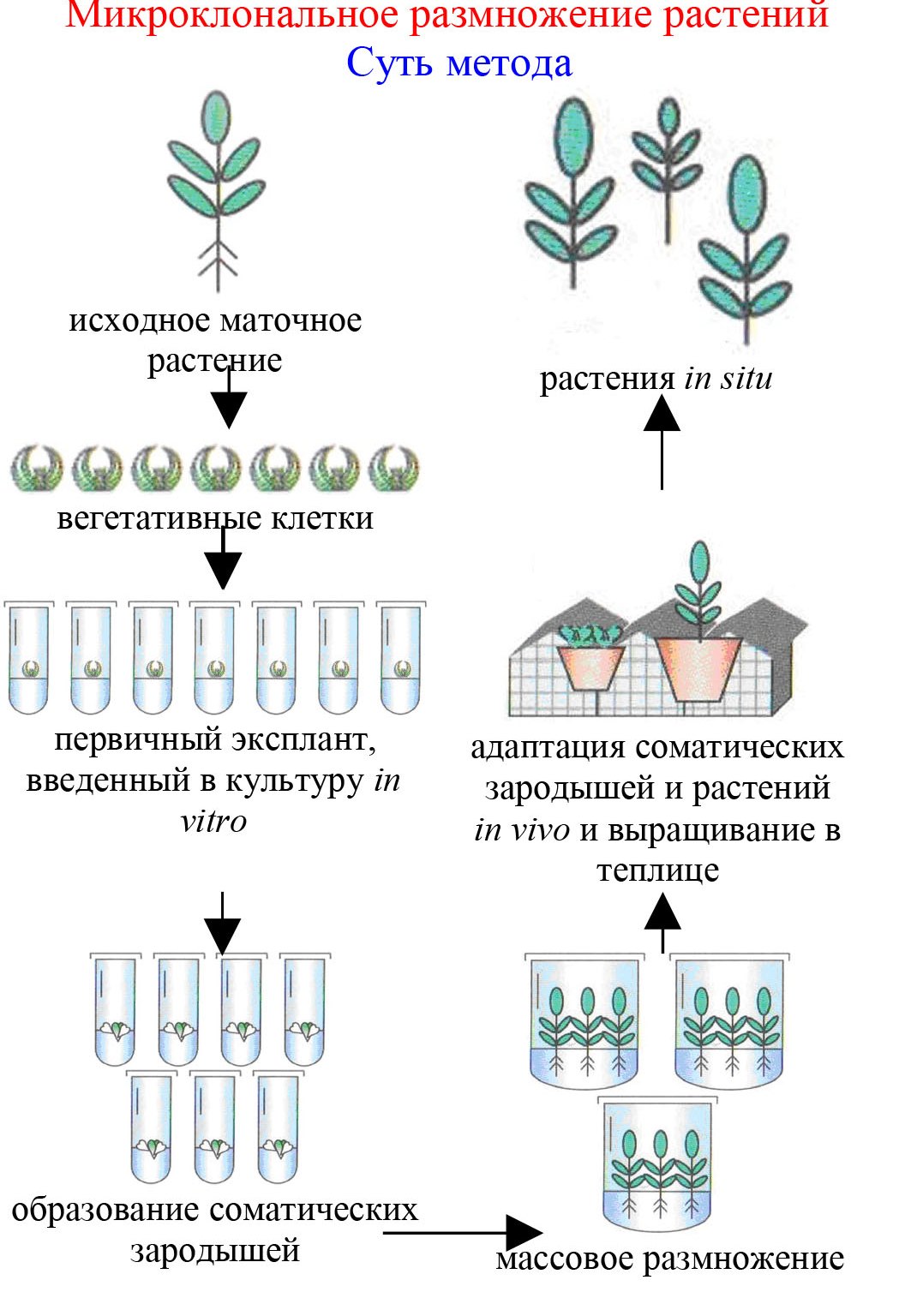The technology of clonal micropropagation allows in a short time to obtain seedlings of:
Company «Comprehensive AgroService» provides services with creating a laboratory "turnkey".
Reproduction of plants in vitro (microcloning) - vegetative reproduction of plants from cells of the mother's body, is based on the phenomenon of totipotency (the ability of a single cell to create a whole new organism).
| Berry | Floral | Ethereal |
| Strawberry | Gardenia | Variety Mint |
| Raspberry | Chrysanthemum | Rhodiola Cicatina |
| Grapes | Myrtle | Oregano |
| Figs | Jasmine | Lavender |
| Blackberry | Rose | Thyme |
| Actinidia | Orchid "Phalaenopsis" | Rose essential oil |
| Honeysuckle | Orchid "Vanda", "Dendrobium" |
And also, wood cultures hazelnut, walnut and paulownia.
Get the seedlings of the plants listed in the table above can be in a relatively short time. The company "Complex AgroService" offers a service of reproduction of its plant sample (provided by the customer), a full cycle of reproduction in this case may take longer.
This variety starts fruiting from June - this is its first crop, which is formed on shoots of the second year. Meanwhile, the first year's shoots are gaining strength, which already form the second crop since August, which lasts until the very frosts.
The fruits of this variety are one of the largest, the weight of individual berries is 15 grams, they are distinguished by their high density and rich taste. Expected yield of 5-8 kg of harvest from the bush.
Berries size 8-9 gr, dense, well suited for freezing. From the bush you can expect more than 3 kg of harvest, which will be one and rather late, which provides its protection against pests. The variety is resistant to gray rot, fungi, frost.
Needs winter pruning, shelter. Advantageous is the weak formation of shoots by their slow growth, due to which it does not need to thin often.
A variety that has become a benchmark in Europe. Berries are quite large, ranging in size from 3 to 6 grams, with a pronounced aroma of raspberry and a rich taste, a tasting assessment of 4.5 points.
Fruiting occurs from the end of July to the beginning of frosts. What distinguishes this variety is its fruit bearing on annual shoots. The average yield is 9 tons per hectare.
Winter should be sheltered, since frosts can harm.
Average maturity - the first harvest can be expected in the first ten days of July, with a bush you can expect up to 6 kg of yield. An interesting plus of this variety is that the ripened berries do not fall to the ground, they remain on the branches for a long time without decaying. Bones in berries are almost not felt.
The bushes are compact, the height of individual shoots is 1.8 m. It perfectly tolerates frosts, it is not necessary to cover up to digits minus 30 gr. Tsels. It is very resistant to diseases, practically is not affected by rot of the root neck, viral diseases.
The variety was bred in 1966 with the USA. Exceeds the raspberry 3 times in yield and in the content of a number of biologically active substances. Berries are large, up to 5 grams, up to 3 cm in diameter, are well transportable, which is important for trade. The taste is sweet and sour. Saplings should be placed at a distance of 2.5 x 1.5 m or 3 thousand saplings per hectare. This berry usually pays off for the second year of the industrial harvest.
Fruiting period is extended from July to October. Maturation occurs from August to frost. The branches are long, so they should be tied, for which they pull 5 wires every 50 cm. To berry was larger, you need pruning of lateral branchlets of the shoot. Green pruning requires leaving 8-10 shoots per running meter. Resistant to stem crab, rust.
We offer services for creating a laboratory for clonal propagation of plants. Consultations, project development, equipping with equipment, training of personnel on our base. Consultations on preparation of nutrient solutions, equipment sterilization, departure of our specialists to the customer. Call +380504200351.
